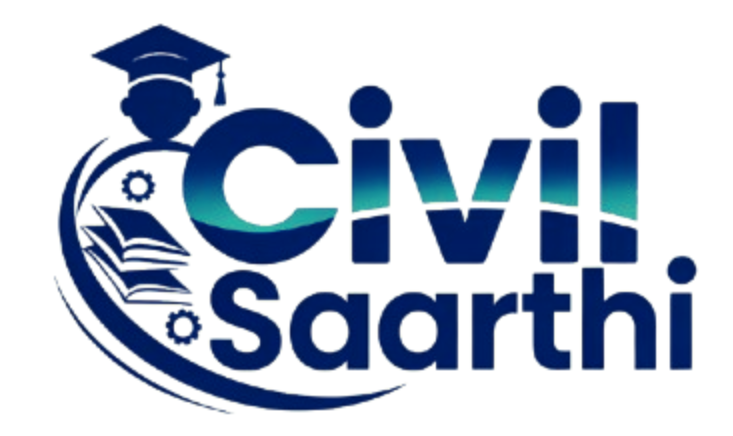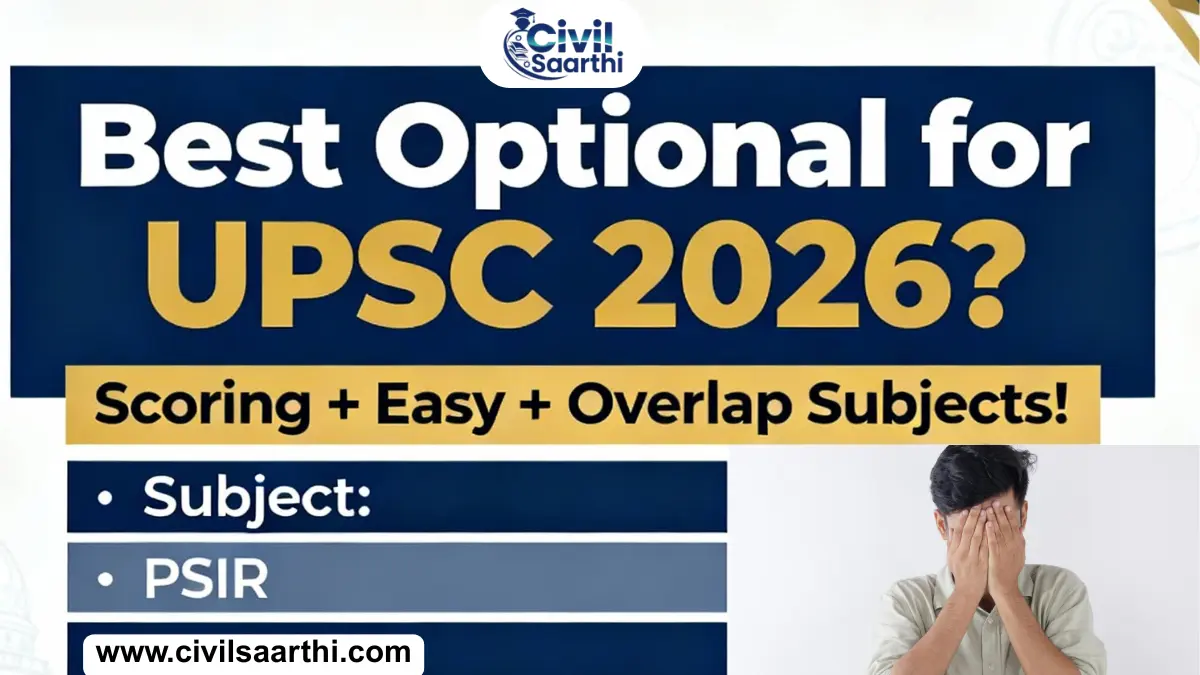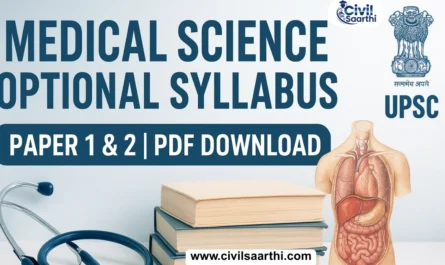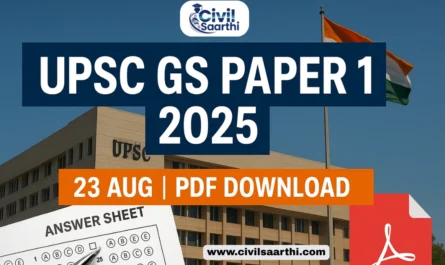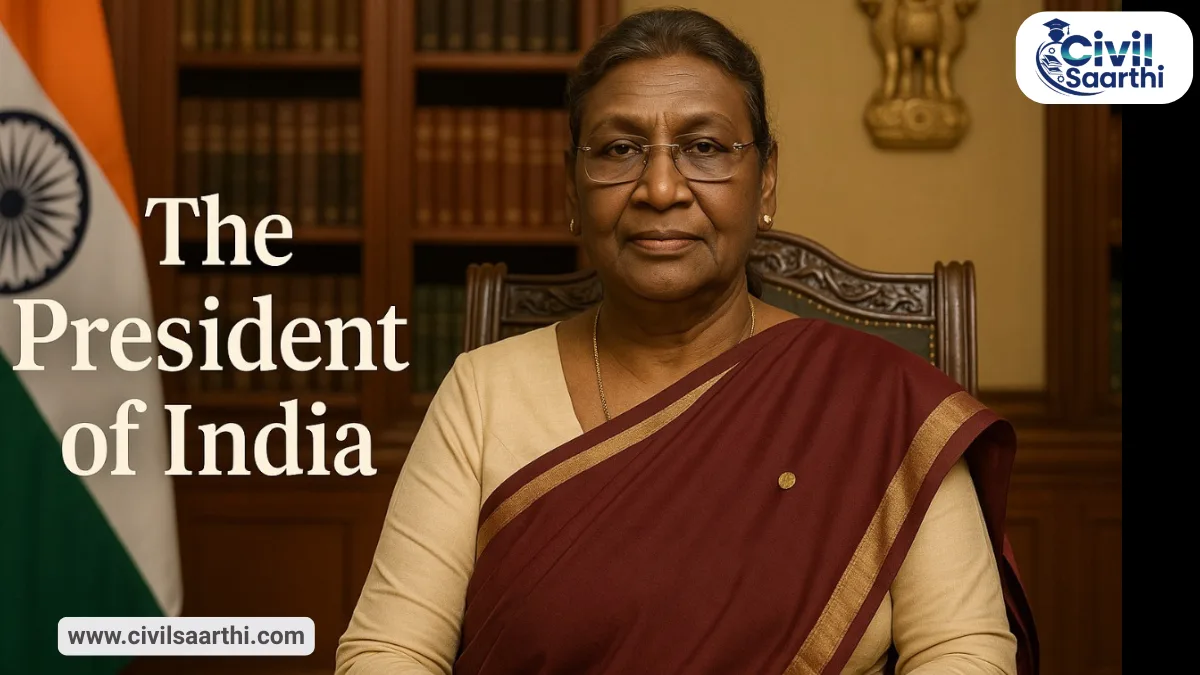Selecting the right optional subject for the UPSC Civil Services Mains Exam 2026 can be a turning point in your journey to becoming an IAS officer. While General Studies papers are common for all aspirants, the optional subject is your personal choice, and it can either boost or break your final rank.
With 500 marks (two papers of 250 each), the optional subject contributes nearly 25% of total Mains marks. Therefore, making an informed choice is essential for every serious aspirant.
This article will guide you step-by-step on how to choose the right optional subject for UPSC Mains 2026, with expert insights, topper strategies, success ratios, and subject comparisons.
Understanding the Role of Optional Subject in UPSC Mains
Before deciding, you must understand how the optional subject fits into the UPSC exam structure.
The UPSC Mains consists of 9 papers, out of which two papers (Paper VI and VII) are from your chosen optional. Each carries 250 marks, making it a total of 500 marks.
In past results, many toppers like Tina Dabi (PSIR) and Gaurav Agarwal (Economics) have credited their high optional scores for their top ranks. A good optional can easily fetch 270–320 marks, giving a massive advantage over others.
UPSC Optional Subject List 2026
UPSC offers 48 optional subjects, including 25 general subjects and 23 literature subjects from Indian and foreign languages. Here is the detailed UPSC Optional Subject List 2026.
| General Optional Subjects | Literature Optionals |
|---|---|
| Agriculture | Assamese |
| Anthropology | Bengali |
| Botany | English |
| Chemistry | Hindi |
| Civil Engineering | Kannada |
| Commerce & Accountancy | Malayalam |
| Economics | Marathi |
| Electrical Engineering | Punjabi |
| Geography | Tamil |
| History | Telugu |
| Law | Urdu |
| Management | Maithili |
| Mathematics | Manipuri |
| Mechanical Engineering | Sanskrit |
| Medical Science | Odia |
| Philosophy | Gujarati |
| Physics | Konkani |
| Political Science & IR | Sindhi |
| Psychology | Santhali |
| Public Administration | Dogri |
| Sociology | Kashmiri |
| Statistics | Nepali |
| Zoology | – |
Each subject has its own syllabus, evaluation trend, and success ratio. The goal is to find the one that suits you best.
Why Choosing the Right Optional Matters
Many aspirants underestimate the importance of the optional subject and choose it impulsively. But this choice impacts:
- Your final merit list position
- Your comfort level during Mains preparation
- Your answer-writing style and conceptual clarity
For instance, even a 20–30 mark difference in the optional paper can decide whether you make it to the IAS or end up waiting another year. Hence, treat it as a strategic and long-term decision.
Factors to Consider Before Choosing Your Optional
Choosing an optional subject should be a balance between interest, scoring potential, resource availability, and overlap with the General Studies papers. Below are detailed factors to guide you:
Your Interest and Background
Interest is the foundation of consistent study. If you choose a subject you enjoy, studying it for months won’t feel like a burden.
For instance:
- A history enthusiast might enjoy History or Political Science.
- A science graduate might find Anthropology or Physics more relatable.
If you are from an arts or humanities background, Sociology, PSIR, and Public Administration might suit you better.
Key Tip: Review the syllabus and read 1–2 topics. If you feel curious and engaged, you’ve likely found the right subject.
Overlap with General Studies Papers
One of the smartest ways to choose an optional is to look at its overlap with GS papers, Essay, and Ethics.
This overlap saves time, reinforces your GS understanding, and helps you write multidimensional answers.
| Optional Subject | GS Overlap Area |
|---|---|
| Political Science & IR | GS Paper II (Polity, IR), Essay, Interview |
| Sociology | GS Paper I (Society), GS Paper IV (Ethics) |
| Geography | GS Paper I (Geography) |
| History | GS Paper I (Modern India, Culture) |
| Public Administration | GS Paper II (Governance), GS Paper IV (Ethics) |
| Anthropology | GS Paper I (Society, Culture) |
If your optional helps you in multiple papers, you save both time and effort, a key advantage in UPSC preparation.
Availability of Study Material and Guidance
A subject may seem interesting, but if standard books, test series, and coaching are not available, it becomes difficult to prepare effectively.
Popular optionals like Geography, Sociology, PSIR, and Anthropology have abundant material online and offline. However, niche subjects such as Zoology or Management may have limited sources.
Before finalizing, check:
- Are standard books available?
- Are toppers’ notes or guidance available online?
- Can you find a good test series or mentor for answer writing?
This ensures smoother preparation and revision.
Length and Nature of the Syllabus
Some subjects have vast, theory-heavy syllabi (like History), while others are short and conceptual (like Anthropology or Sociology).
If you are a working professional or have limited study hours, pick a subject with a manageable and well-defined syllabus.
| Optional Subject | Syllabus Length | Difficulty Level |
|---|---|---|
| Sociology | Short | Easy to Moderate |
| Anthropology | Short | Moderate |
| Geography | Lengthy | Moderate |
| PSIR | Moderate | Analytical |
| History | Very Lengthy | Moderate |
| Public Administration | Moderate | Unpredictable |
Pro Tip: Read the UPSC syllabus PDF carefully. If it feels overwhelming even after two readings, reconsider your choice.
Scoring Trend and Success Ratio
UPSC doesn’t officially declare which subject is “high scoring,” but trends indicate some subjects have performed better in recent years.
| Optional Subject | Average Marks (Top Scorers) | Success Ratio (%) |
|---|---|---|
| Anthropology | 290–320 | 10.5% |
| PSIR | 270–310 | 9.2% |
| Sociology | 260–300 | 8.7% |
| Geography | 240–280 | 7.8% |
| History | 240–270 | 6.9% |
| Public Administration | 230–260 | 6.5% |
Caution: Don’t choose based solely on trends, UPSC patterns change. Focus on consistency and depth instead of shortcuts.
Writing Style and Analytical Ability
Some subjects test analytical and essay-type writing (like PSIR, Sociology, Public Administration), while others rely on factual or diagram-based answers (like Geography or Anthropology).
Choose according to your writing comfort:
- If you enjoy analytical arguments → PSIR, Pub Ad, Sociology
- If you like structured facts and diagrams → Geography, Anthropology
- If you prefer storytelling and chronology → History
Your natural writing ability matters a lot in Mains, it reflects directly in your marks.
Previous Year Questions Analysis
Before choosing, always analyze previous 5 years’ optional papers.
It helps you understand:
- Question pattern and difficulty level
- Repetitive topics
- Static vs current-based weightage
If the questions feel too abstract or unpredictable, it might not be the right fit.
Availability of Coaching and Peer Support
For some optionals like Anthropology or Law, expert guidance can significantly improve your preparation.
Also, having a peer group studying the same subject helps in:
- Discussion and answer evaluation
- Sharing notes and references
- Staying consistent
Even if you self-study, ensure you can connect with online communities or toppers for insights.
Optional and Career Background Link
Your educational background can sometimes make a subject easier.
| Academic Stream | Recommended Optionals |
|---|---|
| Engineering | Anthropology, Geography, Mathematics |
| Humanities | Sociology, PSIR, History, Philosophy |
| Science | Anthropology, Physics, Chemistry |
| Commerce | Economics, Management, Public Administration |
| Medical | Medical Science, Anthropology |
However, background alone should not dictate your choice — your interest and adaptability matter more.
Time Requirement and Revision Scope
- Ask yourself: “Can I revise this subject at least twice before Mains 2026?”
- Optionals like Anthropology or Sociology allow quicker revisions, while History or Geography need more time due to their length.
- Balance your optional + GS preparation effectively so that neither suffers.
Most Popular Optional Subjects for UPSC Mains 2026
| Optional Subject | Why It’s Popular Among Aspirants |
|---|---|
| PSIR (Political Science & IR) | High overlap with GS, useful for Essay & Interview |
| Sociology | Short syllabus, easy to grasp, good scoring consistency |
| Anthropology | Compact, conceptual, high-scoring with diagrams |
| Geography | Useful for GS, map-based questions, good resources |
| Public Administration | Linked with governance & ethics papers |
| History | Rich overlap with GS Paper I and Essay |
These subjects attract thousands of aspirants each year because they combine relevance, scoring potential, and resource availability.
Common Mistakes to Avoid When Choosing an Optional
- Following trends blindly – What worked in 2024 may not work in 2026.
- Ignoring the syllabus and PYQs – Leads to surprises later.
- Choosing under peer pressure – Your friend’s optional isn’t necessarily right for you.
- Selecting without checking material availability – May face resource shortage mid-preparation.
- Neglecting revision planning – Optional needs depth, not last-minute cramming.
Step-by-Step Process to Choose Your Optional Subject
- Shortlist 3–4 subjects based on your background and curiosity.
- Read UPSC syllabus and previous year questions of each.
- Study one chapter from each shortlisted subject for 2–3 days.
- Evaluate resource availability and your comfort level.
- Discuss with mentors or toppers before finalizing.
- Start preparation by November 2025 for UPSC 2026 cycle.
This process ensures your choice is data-backed, personal, and sustainable.
Optional Subject and Rank Correlation (Toppers’ Data)
| Year | Topper Name | Optional Subject | Rank Impact |
|---|---|---|---|
| 2015 | Tina Dabi | Political Science & IR | Boosted overall rank due to overlap |
| 2017 | Anudeep Durishetty | Anthropology | High marks in Paper II |
| 2019 | Pradeep Singh | Public Administration | Helped in GS II & IV |
| 2020 | Jagrati Awasthi | Sociology | Helped in Essay & Interview |
| 2023 | Ishita Kishore | PSIR | High-scoring optional, conceptual clarity |
This shows that optional subjects have consistently decided final merit positions.
Tips from UPSC Toppers
- Choose what you can explain in simple language, not what sounds complex.
- Focus on conceptual clarity and linking topics with current affairs.
- Revise your optional at least 2–3 times before Mains.
- Join a test series to polish answer writing
- For Paper II, always link theories with recent examples.
When to Start Optional Preparation for UPSC 2026
Ideally, start your optional preparation by November 2025 after Prelims basics are covered.
This gives you around 7–8 months to:
- Complete the syllabus
- Attempt PYQs
- Write 15–20 mock answers
- Revise twice before Mains
Final Checklist Before Finalizing Optional
✅ Read the syllabus completely
✅ Analyze 5 years of previous papers
✅ Check available books & notes
✅ Ensure guidance/test series availability
✅ Match your interest and background
✅ Confirm you can revise it twice
Conclusion
Choosing the right optional subject for UPSC Mains 2026 is not about picking the most popular or scoring subject, it’s about picking the one that aligns with your strengths, interest, and time strategy. Remember, every subject has produced toppers. What matters is your consistency, understanding, and answer-writing skill. Make your choice wisely, prepare diligently, and your optional can become your strongest weapon in the UPSC race.
Choosing UPSC Optional Subject 2026 FAQs
Q1. How many optional subjects can I choose in UPSC Mains?
Only one optional subject with two papers (Paper VI & VII) is allowed.
Q2. Can I change my optional after filling the UPSC DAF?
No, once submitted in the Detailed Application Form (DAF), you cannot change it.
Q3. Which optional has the shortest syllabus?
Sociology and Anthropology are considered to have concise syllabi.
Q4. Which optional helps in both Mains and Interview?
PSIR, Sociology, and Public Administration help in both Mains and Personality Test.
Q5. How much time is needed to complete one optional subject?
Around 3–4 months of dedicated preparation with 2–3 revisions before Mains.
